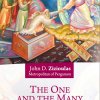His distinguished academic career, including many books, articles and public lectures, contributed to the fields of Anthropology, Sociology, History, Philosophy, Philosophy of History, History of Philosophy and Science, Comparative Religion, Mythology, Linguistics, Folklore and Literature. Prof. Tomashevich, who was born in Vochin, former Yugoslavia, was a survivor of a concentration camp run by Croatian authorities during the Second World War. This harrowing experience stayed with him, and influenced his academic work, for the rest of his life. As a scholar and poet, he wrote movingly on universal human topics, as well as on achievements of Serbian art, history and culture.
His book The Millenniad: Humanity's Road to Maturity, was described as universal in scope, and unusually diversified in content; this work encompasses human efforts, struggles, and concerns from cosmology to sociology. Suffused with benevolent irony and, at times, sardonic humor, it depicts our species’ struggle against early ignorance, fear, and superstition, often institutionalized into powerful and controlling bodies seeking to monopolize the interpretation of the unknown. The whole work is in the form of a poem divided thematically into twelve cantos. It touches upon ancient, medieval, and modern philosophy in relation to concomitant developments in science and technology as they gradually reveal the nature of the universe, its material substance, as well as the problems of life, consciousness, and self-awareness. From the beginning, it also deals with major problems of politics, economics, morality and religion. From the subjective nature of the introductory parts, to the epilogue, the whole work is a portrayal of a modern intellectual’s immersion in, and confrontation with contemporary reality and its open questions. The Millenniad is a massive, erudite, and thought-provoking effort worthy of serious reading and critical contemplation.





